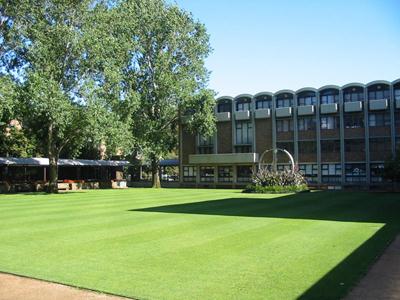雅思閱讀:Why so few university slots?
GETTING into college in America has gotten considerably more difficult over time. Zubin Jelvah writes:
Thanks to the positive effects of higher education on pay, the competition for entrance into the top colleges has increased sharply over the past three decades--particularly in the Northeast and California. But over the same period, the number of slots available at these schools has stayed largely unchanged, leading to a situation where demand far outstrips supply.

He says that this has led students to go to ever greater lengths to develop a competitive advantage in applying for university admission—taking advanced placement courses and test preparatory courses, and investing heavily in extracurricular activities. But that's a positive, right? Competition is forcing students to learn more and be more involved in the community.
To a certain extent, yes, but new research suggests that intense admissions competition also brings with it serious costs. Mr Jelvah cites a paper by John Bound and Brad Hershbein and says:
The researchers argue that instead of better preparing high school students for the rigors of higher ed, increased competition may actually be counterproductive. They find that increased competition is negatively correlated with college enrollment and earnings at age 25 for students in a subset of highly competitive states.
The authors themselves note:
In conjunction with the psychological and informational costs associated with competitive pressure ... these results should raise doubts that the increased competition for college admission has had a net positive effect on what and how students learn.
From an economic standpoint, it also seems probable that stagnant supply coupled with rising demand should generate a predictable price response. And sure enough:
That chart is from Niraj Choksi at the Atlantic. Now Claudia Goldin and Lawrence Katz have argued convincingly that recent growth in income inequality can be attributed to a relative decline in the supply of college graduates and a corresponding increase in the relative supply of lower skilled workers. But James Heckman has established that declines in college completion are about a drop in the rate of college enrolment and a corresponding decline in high school graduation rates. Here's the conclusion to a Vox piece by Mr Heckman and co- author Paul LaFontaine:
In the first half of the 20th century, growth in high school graduation was the driving force behind increased college enrolments. The decline in high school graduation since 1970 (for cohorts born after 1950) has flattened college attendance and completion rates as well as growth in the skill level of the U.S. workforce. To increase the skill levels of its future workforce, America needs to confront a large and growing dropout problem.The origins of this dropout problem have yet to be fully investigated. Evidence suggests a powerful role of the family in shaping educational and adult outcomes. A growing proportion of American children are being raised in disadvantaged families. This trend promises to reduce productivity and promote inequality in the America of tomorrow.
Mr Heckman tends to focus his policy solutions on the very young where, he has argued, remediation efforts bear the most fruit. At the same time, it's possible that the relative lack of success of remediation efforts later on in a student's career is directly related to the above state of affairs.
There is a wage premium earned by high school graduates relative to non- graduates, but its pretty small—much smaller than the gap between high school graduates and those with college degrees. The big advantage of a high school diploma is that it clears the way for a student to move on to the next level.
But the next level is increasingly out of reach for disadvantaged students. Money is occasionally the problem, but competition may be more of an issue. Disadvantaged households do not have the resources to invest in preparatory courses or multiple admissions applications. Students may not have the time after school to participate in extracurricular activities, needing, instead, to work. And disadvantaged students are unlikely to get the parental pressure at home to continue investing in activities designed to enhance competitiveness in admissions.
Perhaps the increasing competitiveness of college admissions processes are leading more students to conclude that college is out of reach—which is therefore reducing the return to a high school diploma and increasing the dropout rate.











